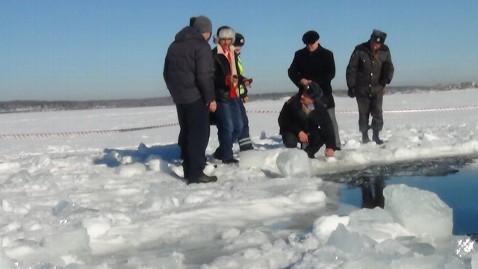Did you enjoy that relaxing three-day weekend? Caught up on sleep, maybe sneaked in a movie or a few errands?
That’s no thanks to Rep. Frank Wolf
(R-Va.), who’s playing the role of the Grinch Who Wants to Steal Presidents’ Day.
Wolf recently reintroduced a bill that would do away with the congressionally established Monday holiday (it’s set for the third Monday of the month) and instead designate it as Feb. 22 — George Washington’s actual birthday. This year, that date falls on a Friday, which means we’d still have a three-day weekend. But that won’t happen every year.
Wolf thinks that by celebrating on an arbitrary Monday, the American people are missing out on the chance to truly remember the life and legacy of our first president (who, like Wolf, hails from the Commonwealth).
He bemoaned many schoolkids’ ignorance on the subject. “Congress has unwittingly contributed to this lack of historical understanding by relegating Washington’s Birthday to the third Monday of February to take advantage of a three-day weekend,” Wolf said in a statement entered into the Congressional Record. “We need to change the focus from celebrating sales at the mall to celebrating the significance of President Washington’s birth to the birth of our nation.”
Wolf even trotted out endorsements of the idea from presidential scholar and author
David McCullough
and from Jim Rees, the executive director of Mount Vernon.
But what would happen to all those great Presidents’ Day deals on mattresses?
New blood
As key members of Team Obama move on, a new study finds that President Obama is beginning his second term with fewer than a third of the senior staff members who made up his original team — a level of turnover that’s pretty typical among modern second terms.
The report from the Brookings Institution shows that 71 percent of Obama’s “A-team” has left, compared with 78 percent for Ronald Reagan, 74 percent for Bill Clinton and 63 percent for George W. Bush.
The paper also examines the importance of senior staff to the president and the toll that turnover takes: “a loss of institutional memory, time lost hiring and orienting a successor, the disappearance of unique networking contacts.”
Most companies in the private sector would consider the typical White House turnover rates “unthinkable.”
But there’s a silver lining here, the author suggests. Second-term hiring affords the White House the chance to bring in new blood and fresh ideas. And it could assuage “disgruntled” constituencies by hiring from their ranks. “Repaying political debts could advance the president’s efforts to pursue a vigorous legislative agenda,” they write.
And finally, a bit of advice: in Obama’s second term, the paper assesses the president’s agenda and suggests that Team Obama recruit from Capitol Hill, which could “provide necessary expertise for the legislative battles that lie ahead. ”
Out of Africa, and back in
Democratic National Committee Executive Director
Patrick Gaspard
, former political director in the Obama White House, appears to be the administration’s pick to be the next ambassador to South Africa.
Gaspard, a major player in New York City politics — he was a campaign staffer for former mayor David Dinkins, for example — was a top operative of the Service Employees International Union and a political organizer.
He also was actively involved in organizing efforts in the 1980s and ’90s to topple South Africa’s apartheid regime. While in the White House, Gaspard, a Haitian American, was also a key player in U.S. relief efforts in Haiti after a powerful earthquake devastated the country three years ago.
Although he grew up in New York City, Gaspard was born in Zaire, now known as the Democratic Republic of the Congo, after his Haitian-born parents moved there for his father’s teaching job. The family moved to New York when he was 3.
Kerry on
Another longtime aide to Secretary of State John F. Kerry is taking a senior post at the State Department. David McKean is to be director of policy planning, a plum position created in 1947 by George F. Kennan and held in later years by foreign policy heavy hitters such as Paul H. Nitze, Mort Halperin and Richard N. Haass.
McKean became the Senate Foreign Relations Committee’s staff director when Kerry took over the committee in 2009 and was his Senate office chief of staff from 1999 to 2008. He left the committee in early 2011.
McKean was also CEO of the John F. Kennedy Library Foundation in Boston and has written three books on U.S. political history.
Last April, McKean become a senior adviser to then-Secretary of State Hillary Rodham Clinton for the Quadrennial Diplomacy and Development Review, assessing State Department operations. Ought to come in handy as Kerry takes over. And his long relationship with Kerry should enable him to provide candid advice — a valuable commodity in this town.
With Emily Heil
The blog: washingtonpost.com/
intheloop. Twitter: @InTheLoopWP.










